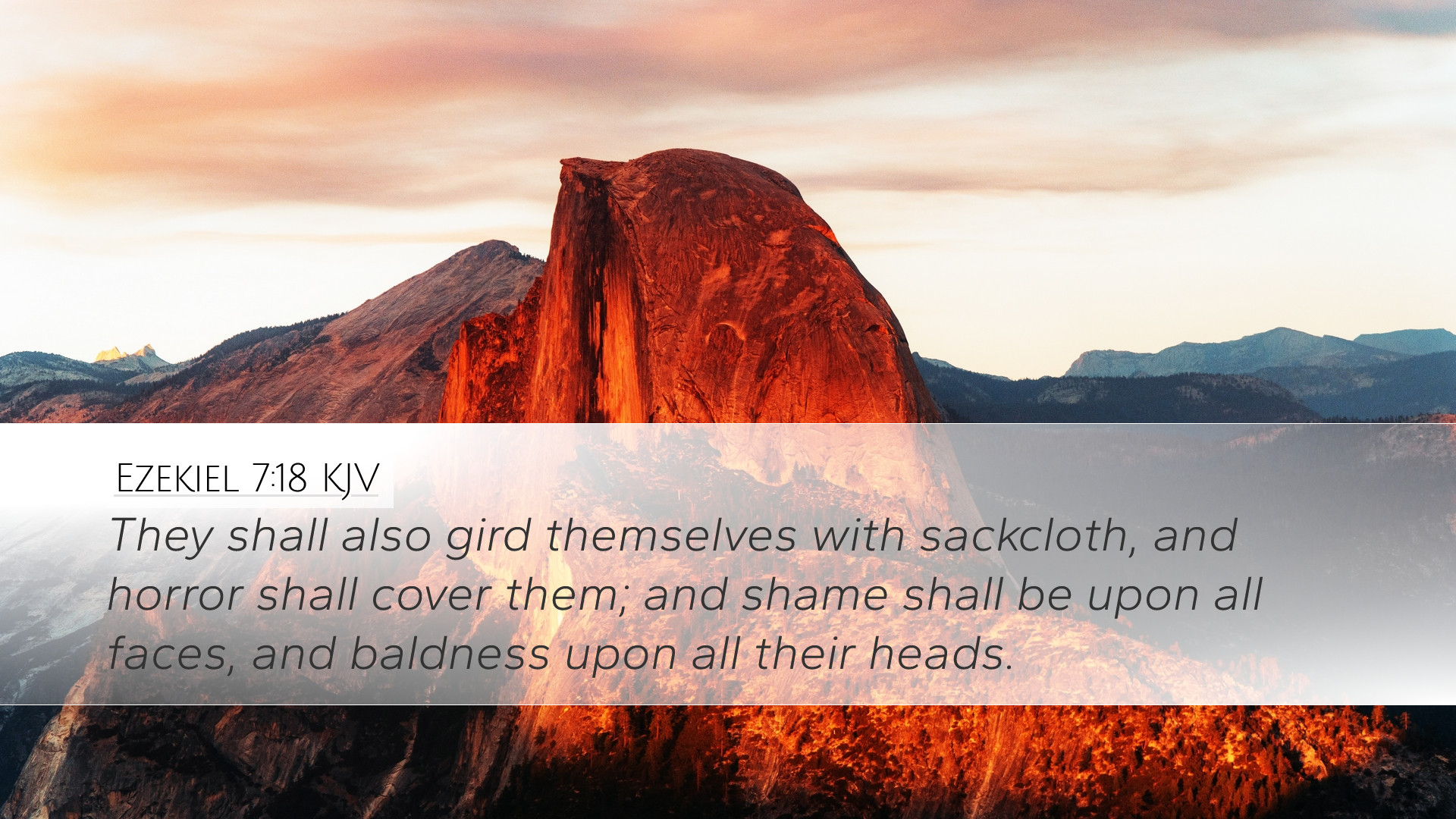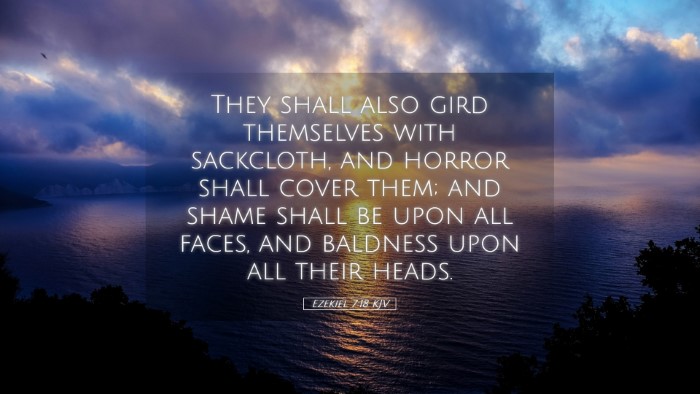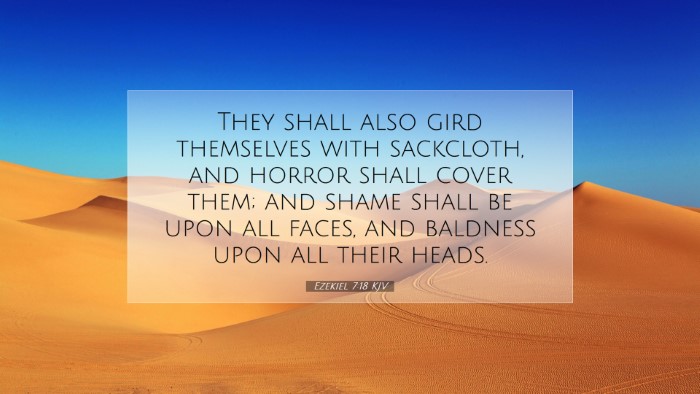Ezekiel 7:18 Commentary
Ezekiel 7:18 reads: "They shall also gird themselves with sackcloth, and horror shall cover them; and shame shall be upon all faces, and baldness upon all their heads."
Introduction
This verse is part of a prophetic message delivered by Ezekiel during a period of judgment upon Israel. It reflects the deep emotional state of the people as they face impending disaster. The imagery used by the prophet depicts not just physical states but also spiritual and emotional realities that the exiled Israelites are experiencing.
Contextual Background
Ezekiel, a prophet among the exiles in Babylon, confronted the people with the dire consequences of their disobedience to God. The prophecies of Ezekiel often encompass themes of judgment, restoration, and hope. In this chapter, the focus is particularly on the grim outcome of their rebellion against God.
Public Domain Commentary Insights
Matthew Henry's Commentary
Matthew Henry highlights that the act of girding oneself with sackcloth signifies a deep expression of mourning and repentance. He notes that sackcloth, traditionally made from coarse material, indicates the seriousness of their situation—marking grief over inevitable judgment.
Henry elaborates that the suddenness and severity of their coming distress evoke a sense of horror that is to envelop the people. This horror serves both as a divine response and a natural reaction to the consequences of sin. The baldness mentioned, often associated with mourning and shame in the culture, symbolizes their complete vulnerability and the stark reality of their spiritual state.
Albert Barnes' Notes
Albert Barnes emphasizes that the imagery of “shame” accompanying “baldness” is not merely external but points to an internal realization of the consequences of their actions. He suggests that baldness is a symbol of the disgrace that befalls them due to their idolatry and rebellion against the covenant with God.
Barnes also links the mourning process to the destruction of the temple and the Holy City. He indicates that such grief is justified because it stems from the realization of their separation from God and the loss of His protective presence. In this state, every aspect of their identity and culture—reflected in their outward appearances—falls into ruin.
Adam Clarke's Commentary
Adam Clarke provides an interesting view of the different aspects of the mourning culture of Israel, where sackcloth is a standard response. He correlates their cultural practices with their spiritual response to God's impending judgment. Clarke points out that the reaction outlined in the verse reflects a collective acknowledgment of guilt and the gravity of their circumstances.
Clarke concurs with the idea that “horror” will cover them, relating it to their conscience bearing witness against them. The baldness, a sign often resulting from grief or shame, portrays their loss of pride and status as God’s chosen people. This public display of mourning indicates an urgent need for repentance, highlighting the importance of recognizing one's sins before God.
Theological Implications
The verse carries significant theological implications for understanding sin, judgment, and the nature of repentance. It showcases the human condition in the face of divine holiness. As pastors and theologians can discern, the call to repentance is multifaceted—demanding both internal reflection and external expression through rituals like sackcloth wearing and fasting.
Repentance and Mourning
The act of repenting, as illustrated in this verse, should not merely be a routine practice, but an intense, heartfelt response driven by an understanding of one's separation from God. In the narrative, the people’s horror and shame portray the seriousness with which they are called to confront their sins. The presence of shame (which can also lead to mental and spiritual despair) functions as a reminder for believers today to remain vigilant against complacency and the allure of sin.
Culture vs. Spiritual State
In examining the cultural significance of sackcloth and its practices, we must also consider its relevance today. Pastors and theologians would do well to understand that while cultural expressions may change, the underlying need for sincere contrition before God remains timeless.
Conclusion
The message of Ezekiel 7:18 is a profound reminder of the devastating effects of sin—not only on the individual but on the community as a whole. Understanding the weight of shame, horror, and the urgent call towards mourning and repentance is essential for any theological discourse. This passage invites pastors and church leaders to guide their congregations towards acknowledging sin, embracing genuine mourning, and seeking true reconciliation with God.


